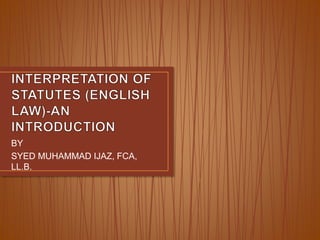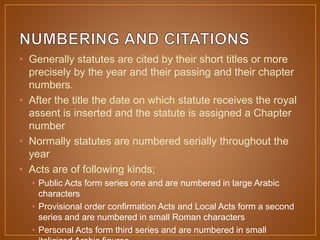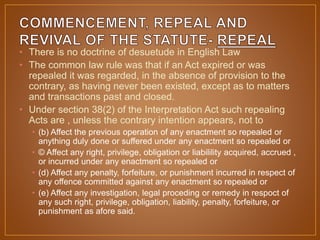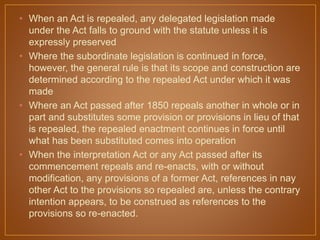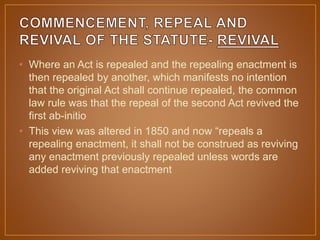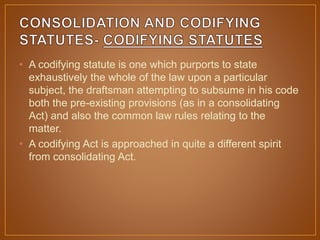This document discusses key principles for interpreting and understanding statutes in the UK legal system. Some of the main points covered include:
- Courts must interpret statutes according to the intent of the legislature and the actual words used.
- Statutes have both long and short titles that can provide context but the words of the statute take precedence.
- Elements like preambles, headings, schedules and punctuation are considered but cannot override the clear meaning of the words.
- Statutes generally take effect once passed and are presumed to be known by all. Repeals and repealing of repeals follow specific rules.
